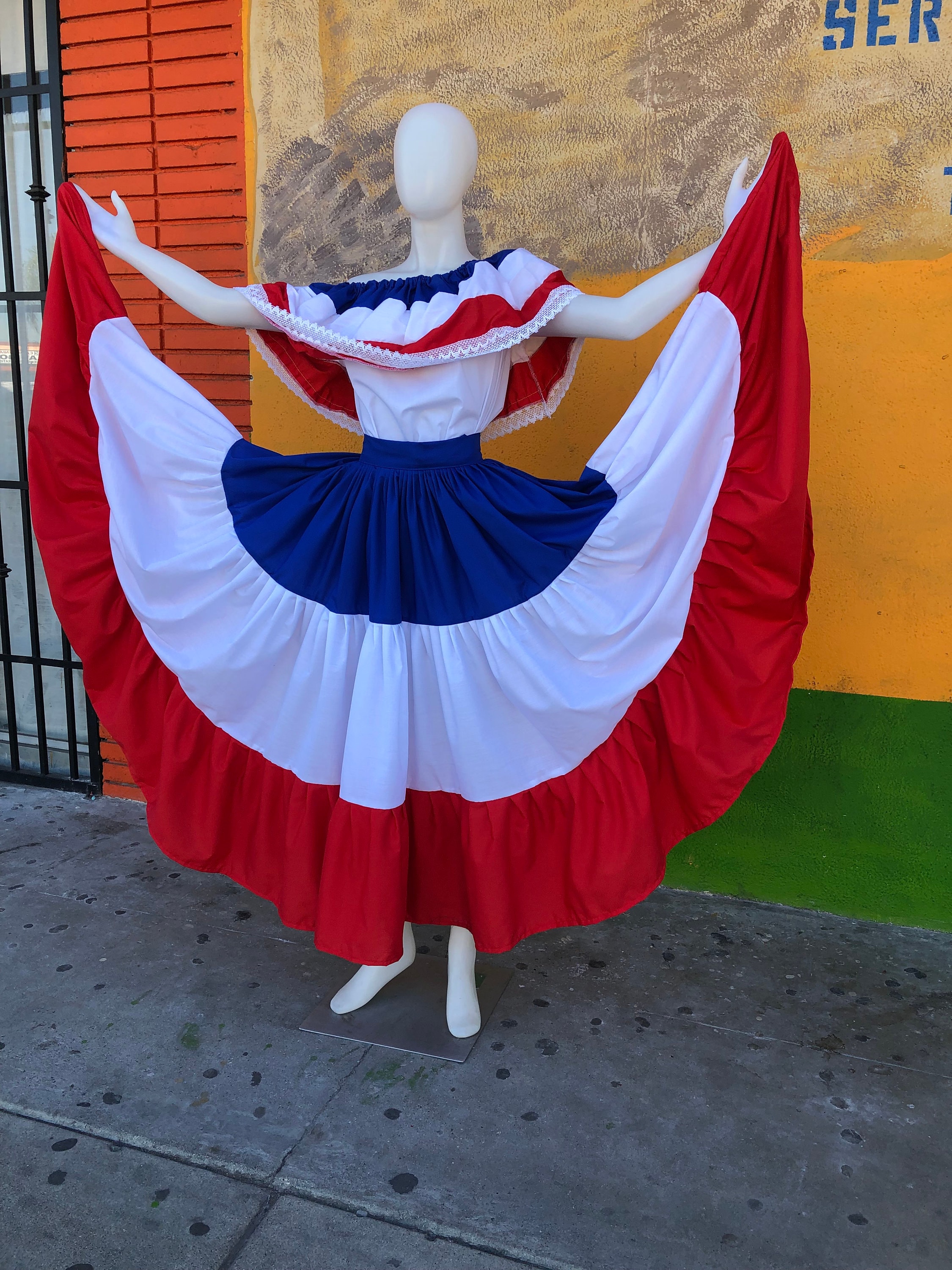A Deep Dive into Dominican Republic traditional Clothing
The Dominican Republic, a vibrant Caribbean nation, boasts a rich tapestry of cultural expressions, and traditional clothing stands as a testament to its history, heritage, and artistic flair. Influenced by Indigenous Taíno traditions, Spanish colonialism, and African ancestry, Dominican fashion reflects a unique blend of these diverse origins.
The Guipú Blouse: A Symbol of Elegance
For women, the guipú blouse reigns supreme as a symbol of elegance and sophistication. This exquisite garment, crafted from delicate lace or embroidered cotton, features intricate patterns and motifs. The guipú blouse is often adorned with vibrant colors, reflecting the exuberant spirit of the Dominican people. It is typically paired with a flowing skirt, often made of brightly colored cotton or linen.
The Camisa Pal’ Monte: For the Working Man
The camisa pal’ monte, a simple yet practical shirt, is a staple in the wardrobe of Dominican men. This lightweight cotton shirt, often in earthy tones like white, beige, or light blue, is ideal for the tropical climate. It features a relaxed fit and is perfect for manual labor, hence its name, which translates to “shirt for the mountain.” The camisa pal’ monte is often worn with loose-fitting trousers and sturdy leather sandals.
The Jícara Hat: A Shade of Tradition
No exploration of Dominican traditional clothing is complete without mentioning the jícara hat. This wide-brimmed hat, woven from palm leaves, provides ample shade from the Caribbean sun. It is a quintessential accessory for both men and women, particularly in rural areas. The jícara hat is not only functional but also a symbol of cultural identity, passed down through generations.
Regional Variations: A Tapestry of Styles
The Dominican Republic, with its diverse geography and cultural landscape, exhibits regional variations in traditional attire.
In the countryside, where agriculture and livestock farming are prevalent, clothing tends to be more practical and comfortable. Men often wear loose-fitting linen pants and simple cotton shirts, while women favor long, flowing skirts and colorful blouses.
The Influence of African Heritage
The African influence on Dominican fashion is particularly evident in the use of vibrant colors, bold patterns, and intricate beadwork. Many of the traditional dances, such as the merengue and the bachata, feature colorful costumes adorned with beads, sequins, and feathers.
Celebrating Tradition Through Festivals

Dominican festivals provide a vibrant platform for showcasing traditional clothing. During celebrations such as Carnival and Independence Day, people don their finest attire, including elaborate costumes, vibrant dresses, and intricately woven hats. These events serve as a reminder of the nation’s rich cultural heritage and the enduring spirit of its people.
The Evolution of Dominican Fashion
While traditional clothing remains an important part of Dominican culture, contemporary fashion has also evolved significantly. Dominican designers are increasingly incorporating traditional elements into modern designs, creating a unique blend of old and new. This fusion of tradition and modernity reflects the dynamic nature of Dominican culture, which continues to evolve while honoring its roots.
Conclusion
Dominican traditional clothing is a testament to the nation’s rich and diverse heritage. From the elegant guipú blouse to the practical camisa pal’ monte, each garment tells a story of the island’s history, its people, and their unique way of life. As the Dominican Republic continues to evolve, its traditional clothing will undoubtedly remain a source of inspiration and a symbol of national pride.


